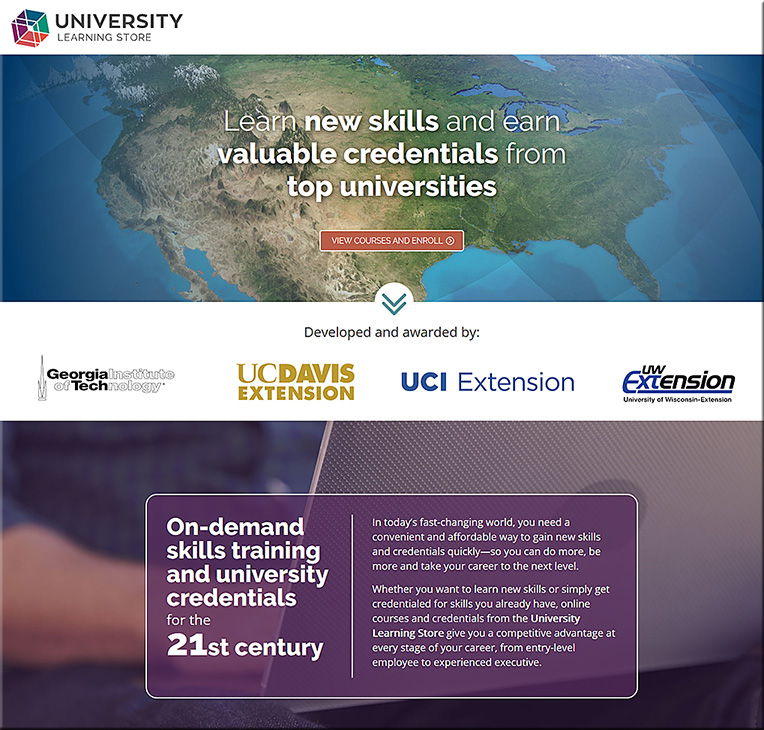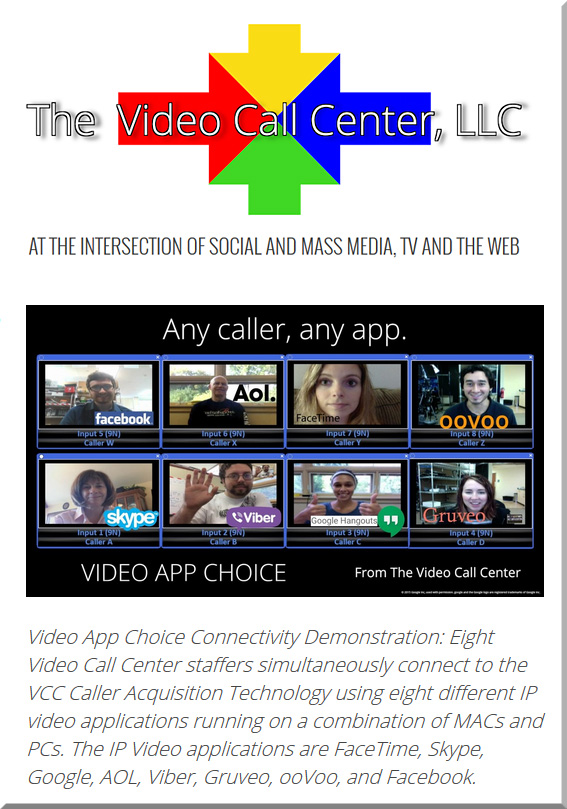From DSC:
- Will more institutions of higher education be joining/contributing courses to this type of University Learning Store? I’ve often wondered about the place of consortia in higher ed…perhaps this will be one of the ways that institutions pool their resources. (i.e., creating and contributing content, tapping into content that’s been aggregated)
. - How will corporate training / L&D groups view his sort of development? Will it be helpful to them?
. - Will the University Learning Store, like Lynda.com, continually expand the list of topics that they are offering/addressing?
.
- Will these types of efforts morph into what I’ve been calling Learning from the Living [Class] Room? (i.e., learning on demand across a lifetime; employing web-based learner profiles, cognitive computing, social networking/learning while offering the ability to instantly form or join communities of practice) Another way of asking this question is this: “As technology-enabled collaborations increase what’s possible, what’s to keep courses from being ported to tvOS-based apps for on demand learning?”
For example, fast forward a few years from the technologies found in “The Video Call Center” and one could imagine some powerful means of collaborating from one’s living room:
![The Living [Class] Room -- by Daniel Christian -- July 2012 -- a second device used in conjunction with a Smart/Connected TV](http://danielschristian.com/learning-ecosystems/wp-content/uploads/2012/07/The-Living-Class-Room-Daniel-S-Christian-July-2012.jpg)
Also see:
Micro-credentials offer universities an opportunity to bridge skill gaps — from centerdigitaled.com by Tanya Roscorla
By working with employers, universities can help students of all ages learn skills that industry leaders need.
Excerpt:
Higher education leaders are pondering how to make bite-sized, low-cost learning opportunities available to students in different ways.
Working adults who change jobs and careers frequently often don’t need to go through an entire degree program to learn different skills. However, they do need a flexible way to earn credentials that are recognized by employers and that demonstrate their ability to apply the skills they learn, said David Schejbal, dean of continuing education, outreach and e-learning at University of Wisconsin-Extension. University micro-credentials can help fill that role.
Six universities have been working with employers to find out what skills they need their employees to have, including the Georgia Institute of Technology, University of California Davis Extension, University of California Irvine Extension, University of Wisconsin-Extension, University of Washington and University of California, Los Angeles.
As a result of collaborating with industry, these universities created short courses and certification programs for the University Learning Store that launched last week. These courses fall into three categories: power skills, technical skills and career advancement skills. Power skills used to be called “soft skills” and include communication, collaboration and critical thinking.










